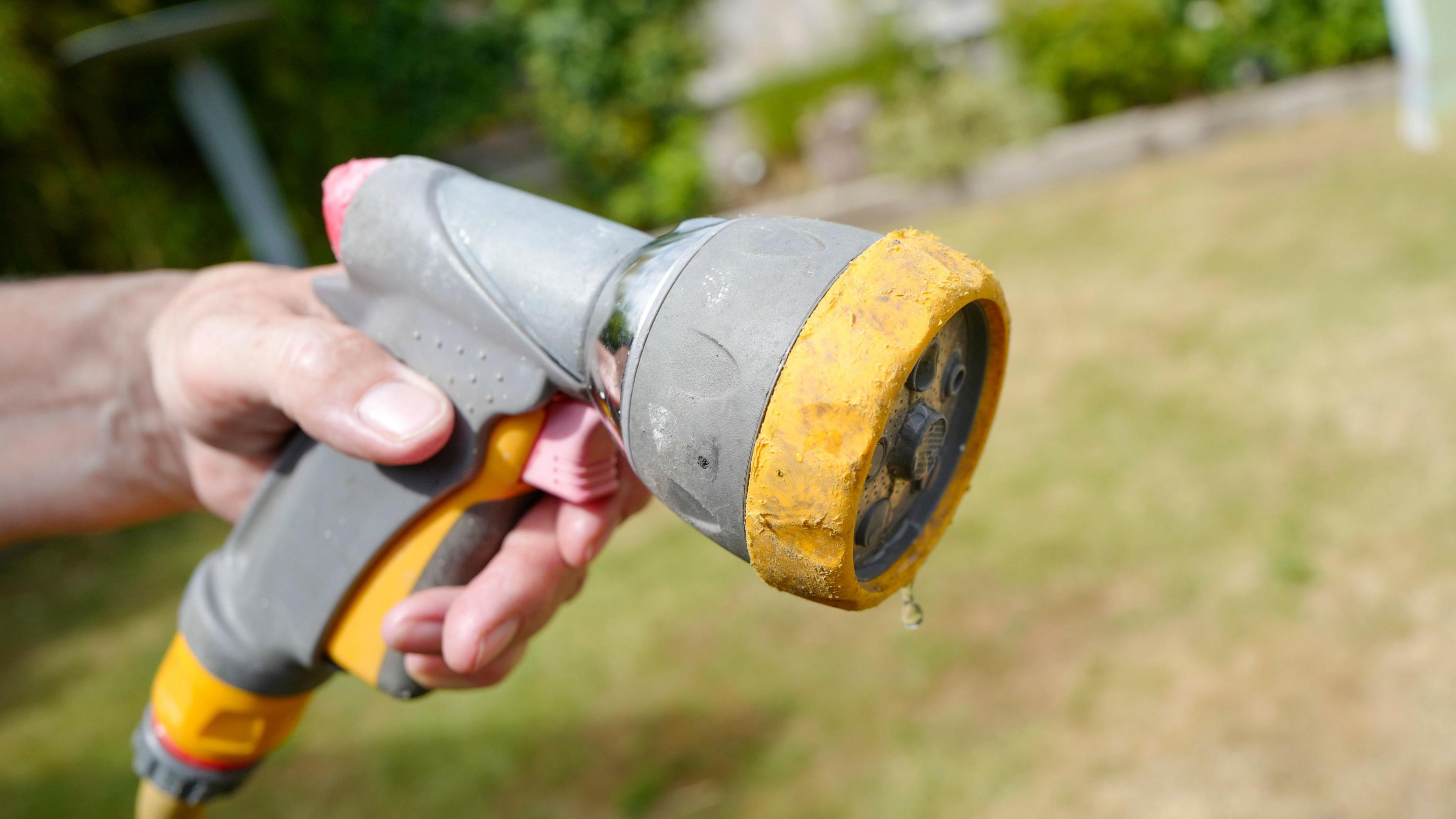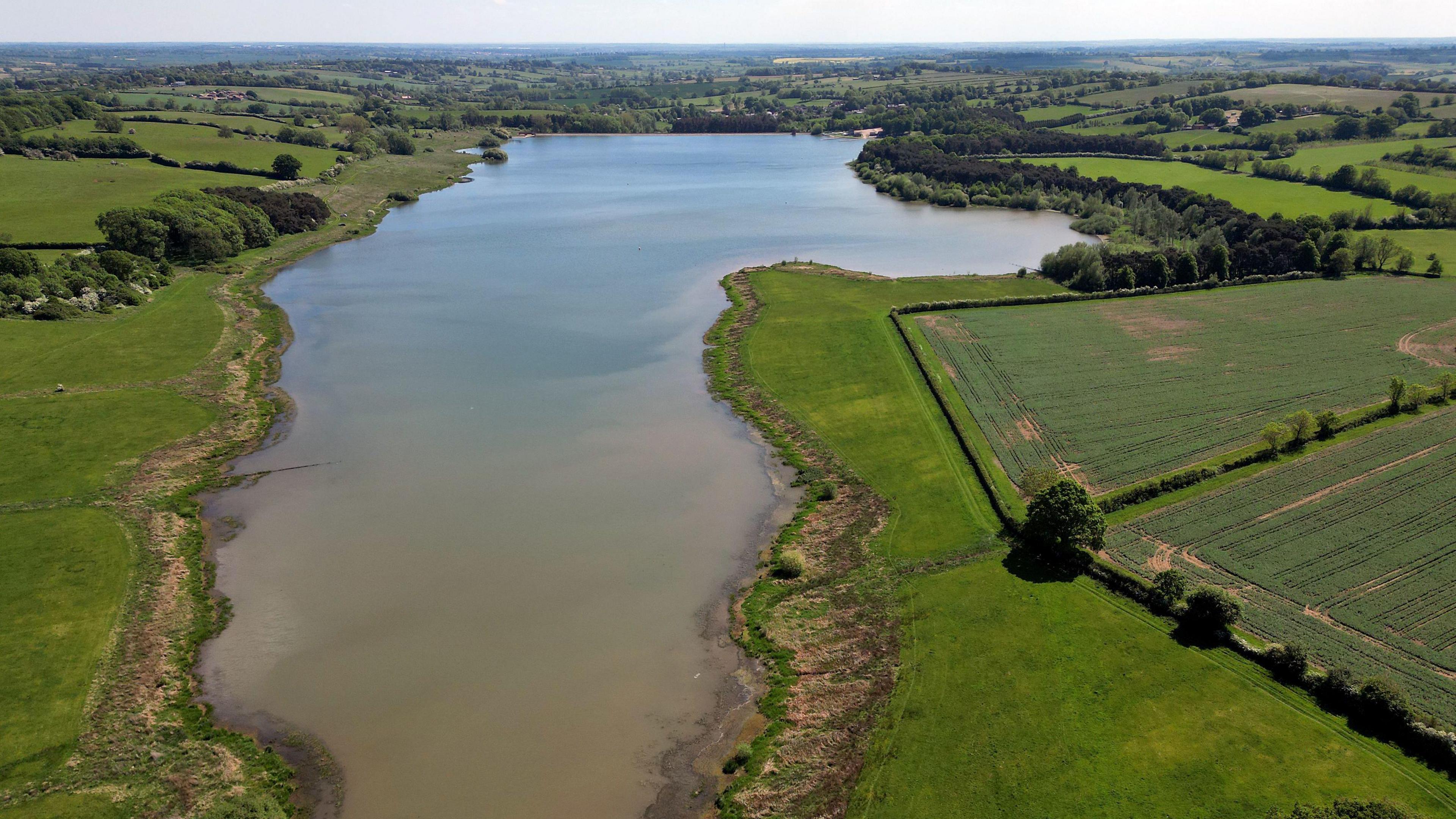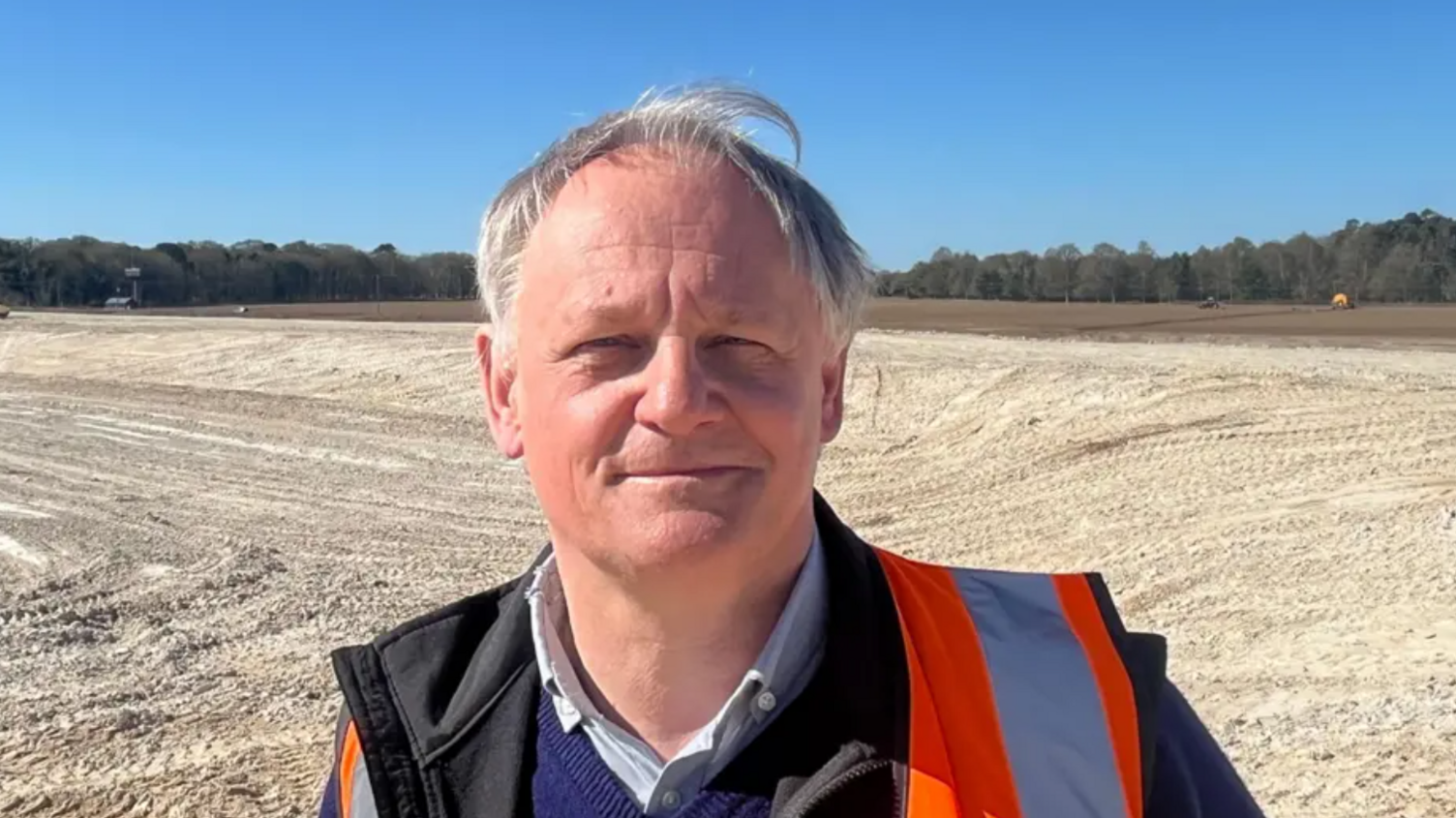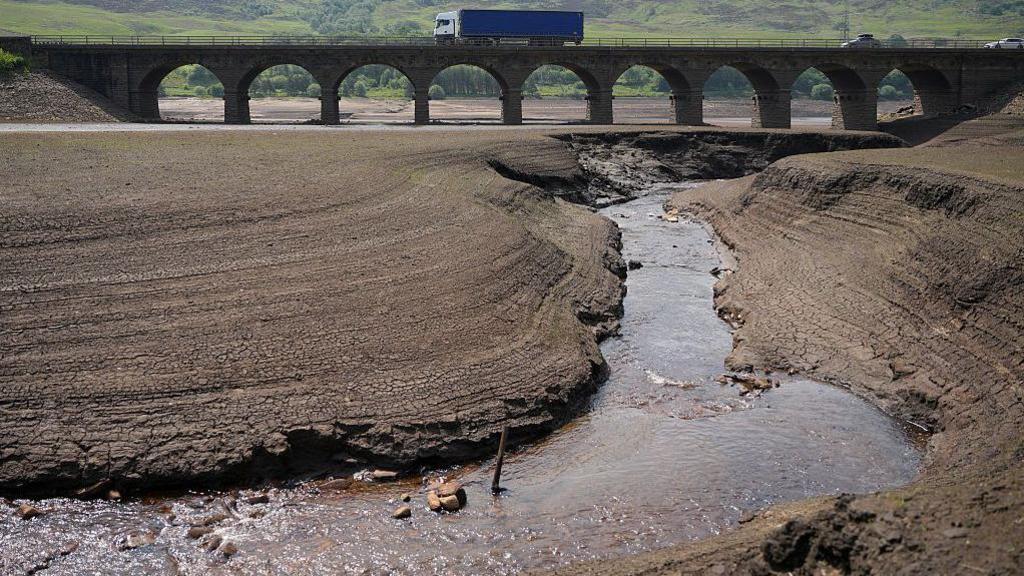Water firm will not rule out summer hosepipe ban

Anglian Water said it would not be restricting the amount of water for households but was monitoring the situation
- Published
A water company said it would not rule out a future hosepipe ban, despite recent rain and river and reservoir levels "delaying the need for restriction".
Anglian Water, which supplies a large part of the East of England, said "uncertainty over the future forecast meant a hosepipe ban could still be needed this summer".
Four other water firms have introduced hosepipe restrictions following the unseasonably hot and dry weather, with a drought declared for parts of England.
In an update on the water situation facing the region, Anglian Water said the last few months had been exceptionally dry, and it had been focusing on tackling leaks to prevent water loss.
Ian Rule, director of water services, said: "The East of England is the driest part of the country, so we're used to seeing a lack of rainfall in our region and we plan accordingly.
"Our focus on leakage, and the investment we've put in place to give us resilience in the face of climate change, has helped to delay the need for restrictions, but the last few months have been exceptionally dry, even by our standards."
Mr Rule confirmed river levels had been low following a lack of rain in spring, "but they have responded better than expected to recent rainfall".
He added, with the forecast "far from certain", the water company was "closely monitoring" the situation.
Mr Rule said its decisions over a hosepipe ban centred on a "careful balance" between protecting the environment and the region's agricultural sector.
Anglian Water also said it had invested more in tackling leaks, with 250 people dedicated to the task, adding it was spending £10m this year on reducing leakage and renewing pipes.
"However, the dry ground we're seeing at the moment means our water pipes are at greater risk of shifting and breaking, so we're seeing an increase in issues being reported to us, and it's an area we are continuing to focus resources on," he added.
The privately-owned water firm urged people to use water carefully.

The driest start to spring in 69 years led to struggling crops, wildfires and low water levels at reservoirs such as Hollowell reservoir in Northamptonshire
Although there is not currently a drought in England, the Environment Agency previously said there was a "medium risk" of one this summer.
The Met Office, meanwhile, reported parts of the region saw their sunniest March on record, with the UK experiencing its driest March conditions since 1961.
The drier temperatures left farmers concerned that their crops would struggle to grow, with some taking drastic action to mitigate the impact.
In April, Elveden Farms, close to the border between Suffolk and Norfolk, said it was in the process of building its third water reservoir, costing about £3m.

Andrew Blenkiron of Elveden Farms said farmers were having to do more to safeguard their produce
The country's changing weather patterns mean the UK now experiences a "notably different" climate to what it was just a few decades ago, the Journal of Climatology's State of the UK Climate , externalreport said.
Climate change was expected to lead to drier summers on average, while more intense heatwaves meant more water could be lost via evaporation.
Get in touch
Do you have a story suggestion for the East of England?
Follow East of England news on X, external, Instagram, external and Facebook: BBC Beds, Herts & Bucks, external, BBC Cambridgeshire, external, BBC Essex, external, BBC Norfolk, external, BBC Northamptonshire, external or BBC Suffolk, external.
- Published13 July

- Published14 July

- Attribution
- Published3 September

